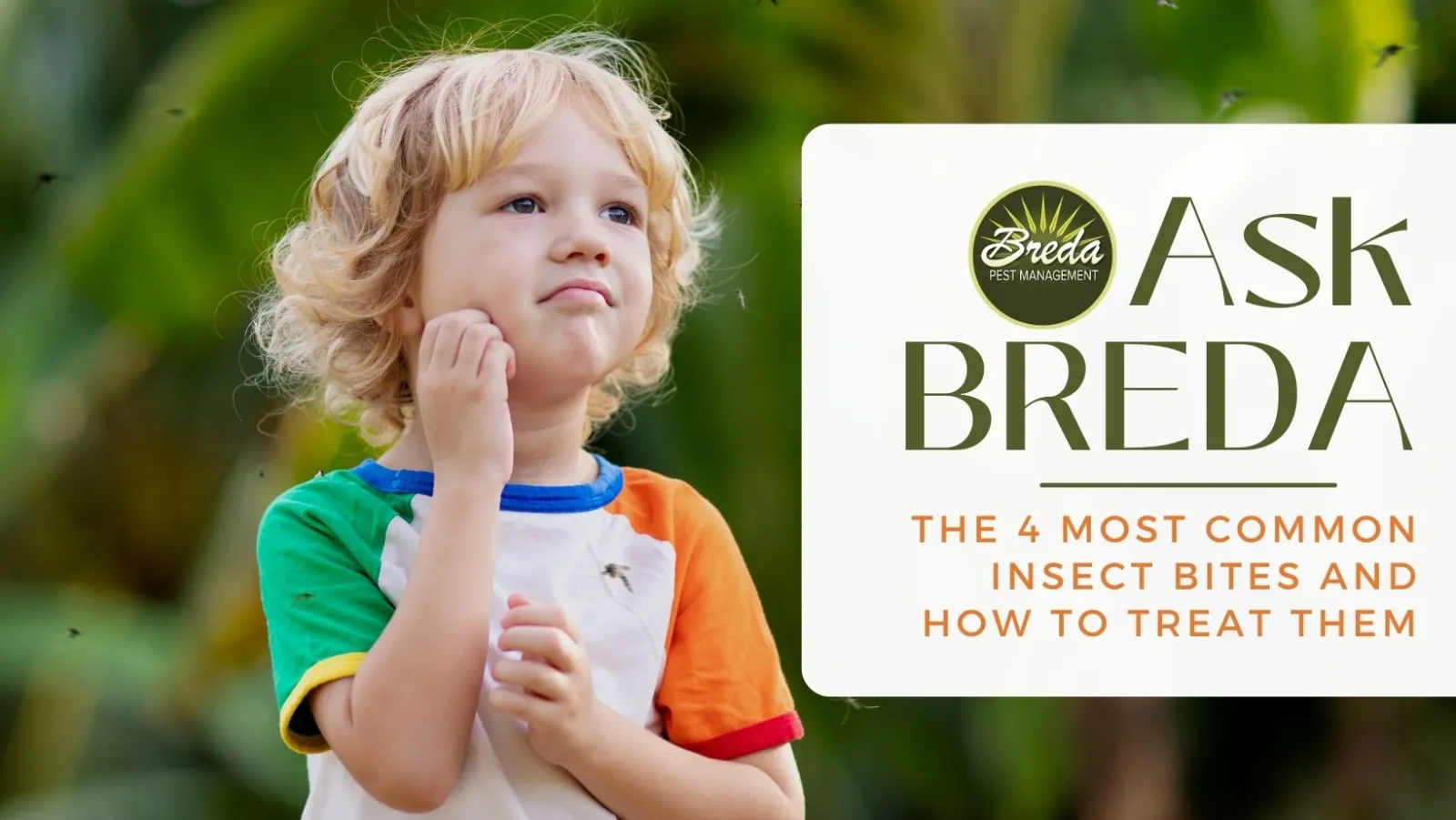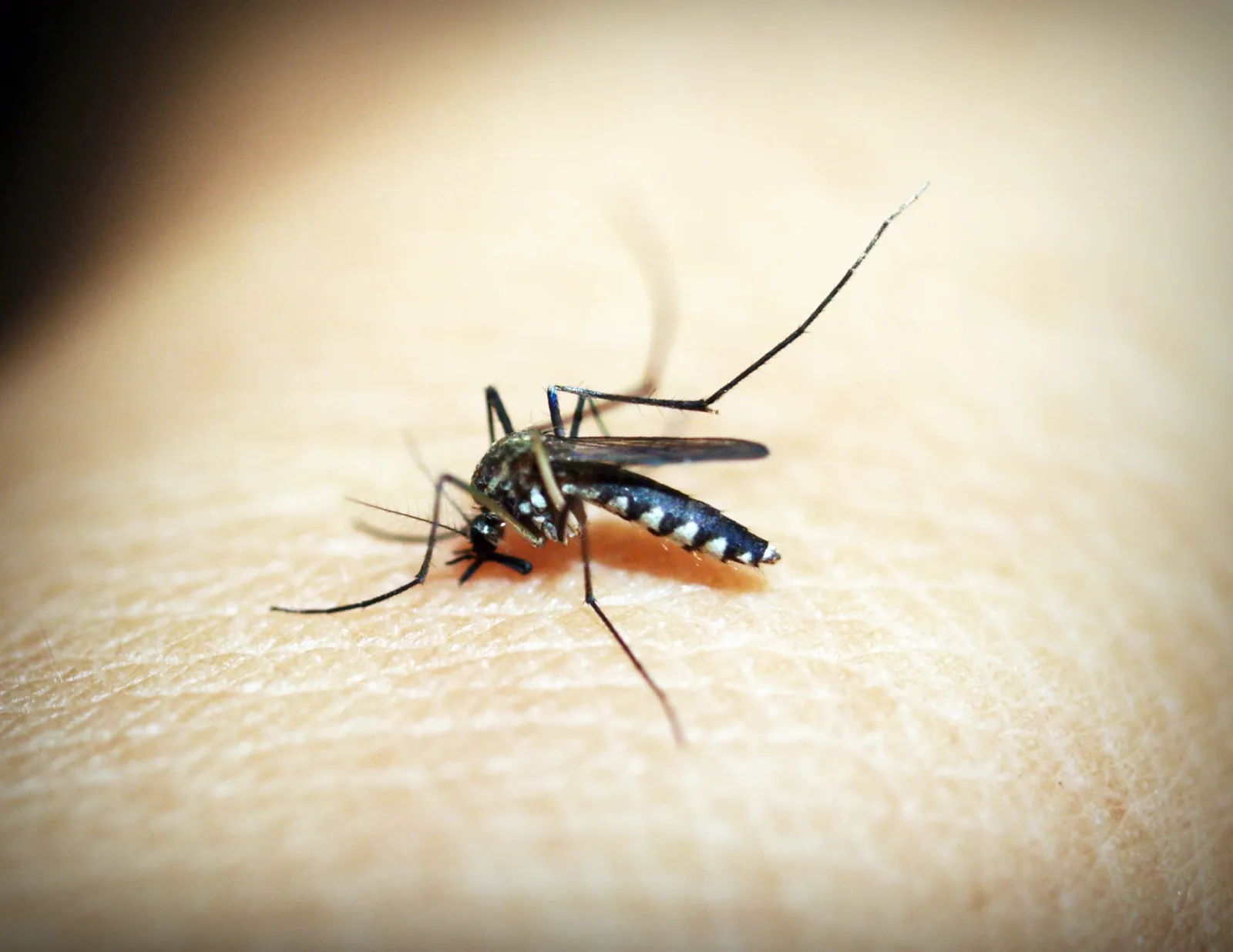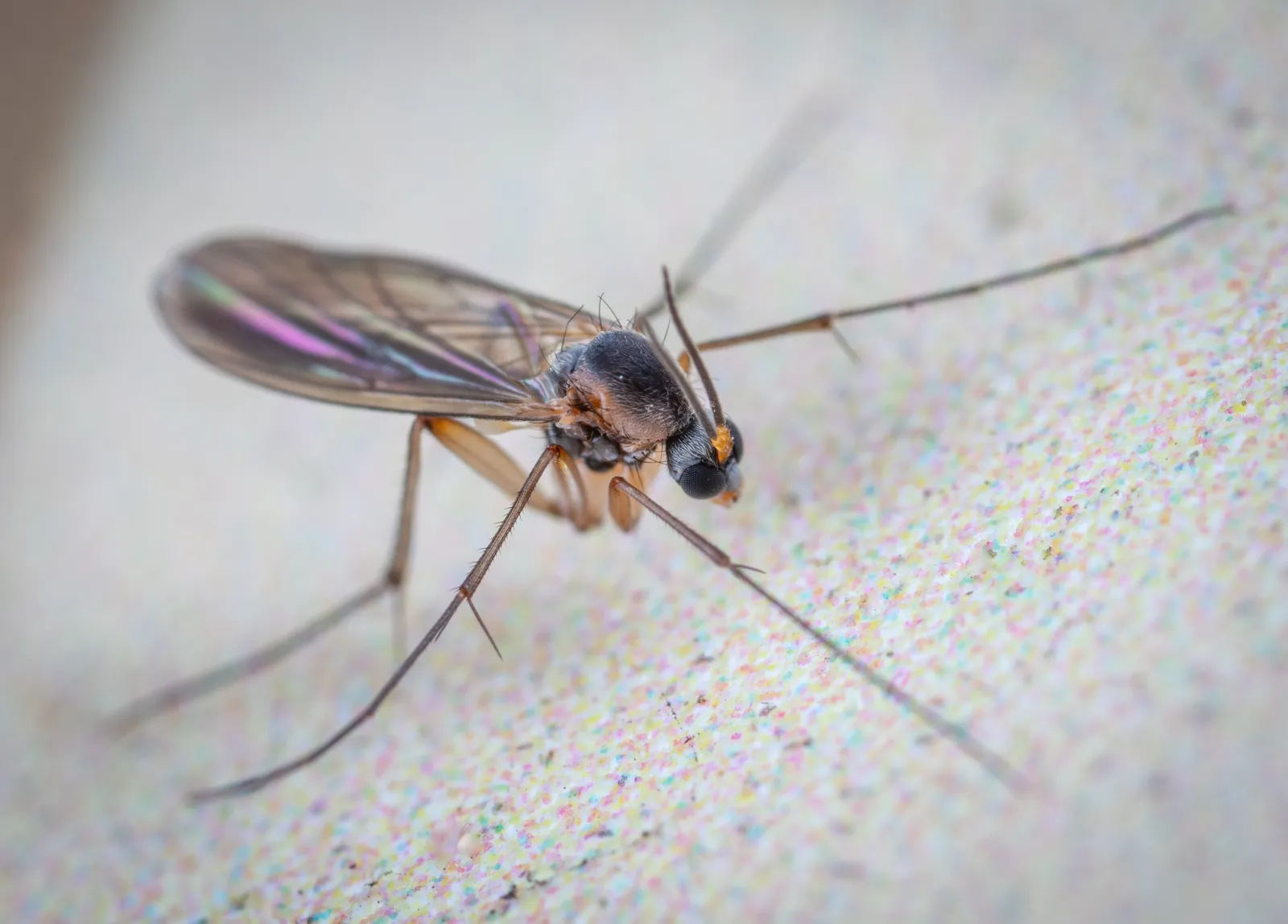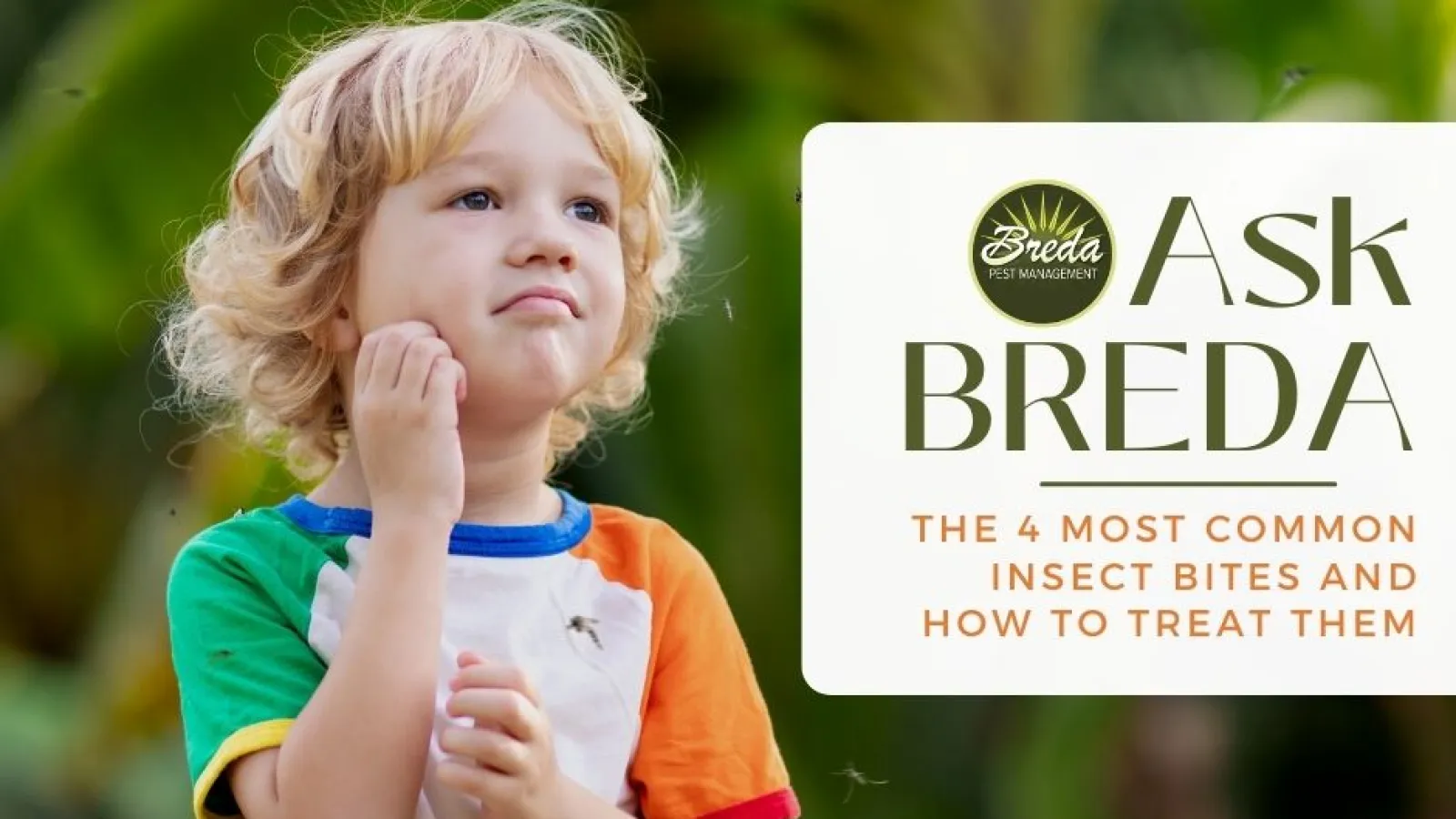
Learn how to treat the most common bug bites in the metro Atlanta area
We love providing Metro Atlanta homeowners with superior pest control service and top-notch information on how to combat common insects and critters in Georgia. But we also know that sometimes you just have a random question you'd love a quick answer for.
If you've got a pest question, reach out to us on Facebook and Instagram with your question and use the hashtag #AskBREDA. Then check back to the blog each month to see if we tackle your question!
This month, we received these questions:

Question: How should you treat a mosquito bite so it doesn't itch forever?
To best answer this question, you need to understand what is happening when a mosquito bites you. After the mosquito lands on you and is feeding, it injects saliva into your skin. Your body reacts to the saliva resulting in a bump and itching. For those who are allergic or more sensitive to mosquito bites, the reaction is much more intense and requires medical assistance.
Here are some simple treatment steps for mosquito bites:
Wash the area with soap and water.
Apply an ice pack for 10 minutes to reduce swelling and itching. Reapply the ice pack to the area as needed.
Apply a mixture of baking soda and water to the bite, which can help reduce the itch response happening under the skin.
Use an over-the-counter anti-itch or antihistamine cream to help relieve itching. (ex. Hydrocortisone cream)
Question: Besides mosquitoes, what other insects could bite me and how do I treat those bites?
Our first bug isn't much of a surprise: ants, specifically >a href="https://www.bredapest.com/ants">fire ants. Other ants will bite, sting, or inject venom into your skin, but fire ants pose the greatest risk, especially to children in the summer months. Since summertime is the time to run around the backyard or the park, kids could blindly run through an ant hill and not realize what they've done until they are being bit by the angry ants. During an ant bite, the ant will grab your skin with its pinchers and release a chemical called formic acid into your skin. Some people are allergic to formic acid and could experience an allergic reaction from the ant bite.
If you or your child are stung by a fire ant, here are some immediate steps to take:
Wash the stung area with soap and water, then apply an antiseptic.
Apply a soothing ointment, like a hydrocortisone cream or calamine lotion, and cover the area with a dry, sterile bandage.
If swelling is a problem, apply an ice pack or cold compress to the area.
Another chomping insect you might encounter are biting gnats. There are thousands of species of "gnats," but the biting kind are most worrisome. Both male and female gnats feed on plant nectar. In some species, the females also need blood meal to make eggs. Biting midges are tiny flies that can be severe biting pests of humans, pets, livestock, and wildlife. Their blood-sucking habits also raise concerns about possible involvement in the transmission of disease agents. When a gnat bites, it uses scissor-like mouth structures to cut the skin, which can cause a raised, red bump on the skin of the person or animal.

To treat a gnat bite, follow these steps:
Apply a cloth dampened with cold water or filled with ice to the area of the bite or sting for 10 to 20 minutes. This helps reduce pain and swelling. If the injury is on an arm or leg, raise it.
Apply calamine lotion, baking soda paste, or 0.5% or 1% hydrocortisone cream to the affected area.
Other biting or stinging insects you may encounter this summer are wasps and bees. The female bees and wasps are the ones who sting. Wasps can sting multiple times whereas honey bees will leave their stinger in you. If you or your child aren't sure if a bee or wasp did the stinging, you can carefully look at the area and see if you see a stinger or not. If you do see a stinger, gently use tweezers or use a credit card to remove the stinger.
Mosquito bites can itch for days, but it is not uncommon to have very uncomfortable pain with wasp or bee stings. Here are some treatment steps you can take as soon as possible after a wasp or bee sting:
Immediately get ice or an ice pack on the sting.
If you or your child are not allergic or sensitive to Benadryl, taking a dose of that medication as soon as you can will help reduce the swelling and discomfort of the sting.
If the area becomes "very hot" or there is an increase in discomfort, baking soda paste, or 0.5% or 1% hydrocortisone cream will help to alleviate the discomfort.
Question: What should I be watching for if my child gets stung or bit by a bug?
Insect bites or sting can be more of a tense situation for children because it might be their first time dealing with that type of sting. All stinging insects can pose significant issues with children. As a parent of a child that's never been stung, you want to closely monitor the child over the next few hours to make sure they are not having an allergic reaction. Keep Benadryl on hand in the summer months, have ice packs in the freezer, and stock up on anti-itch creams. This preparation will save you a lot of time (and panic) when rushing to treat a child that's been stung. If at any point your child shows any signs of labored breathing or difficulty swallowing, immediately take them to the ER. If significant discomfort or swelling continues after 24 hours, take your child to see their pediatrician for further treatment options.
If you find yourself needing pest control and want it handled thoroughly, don't hesitate to give us a call. The BREDA Guarantee promises to fix your pest problem and keep it fixed—no matter the circumstances. Schedule a consultation online or give us a call at 770-466-6700.



